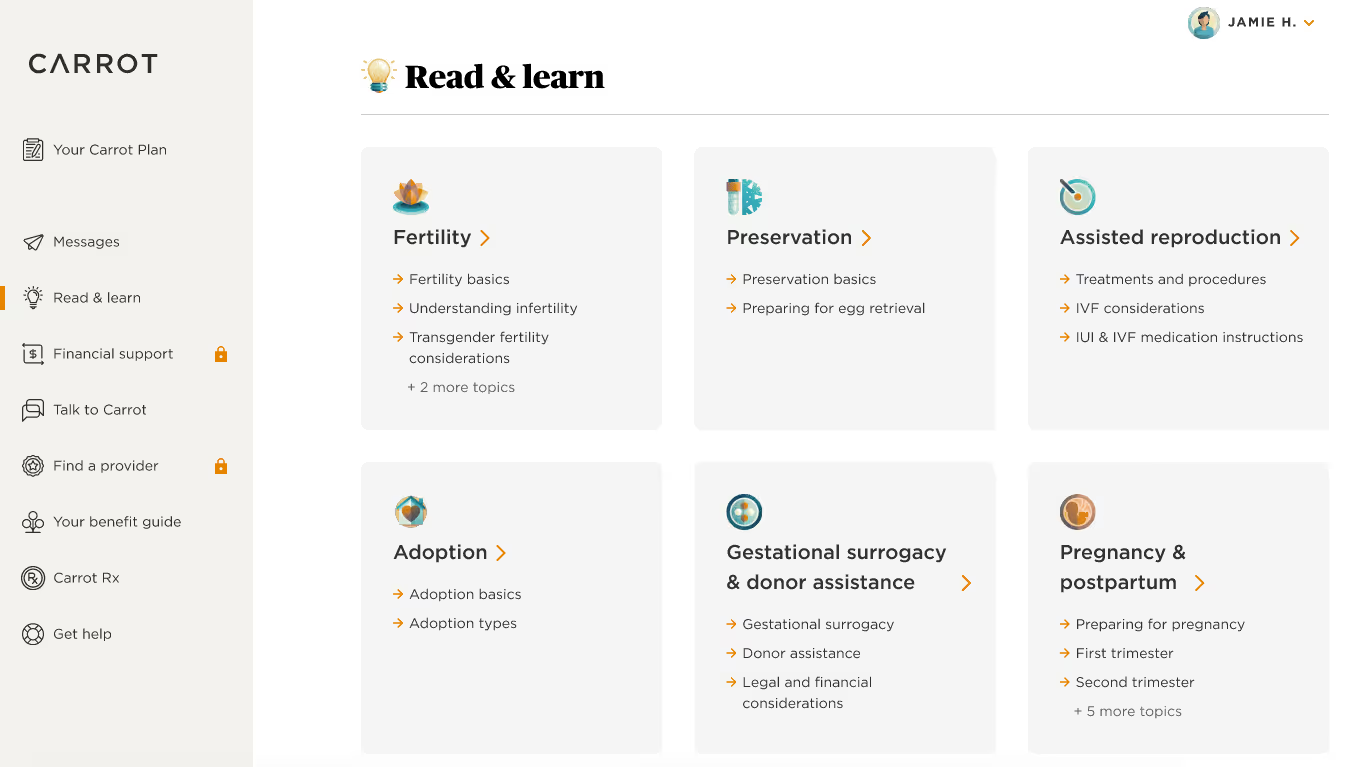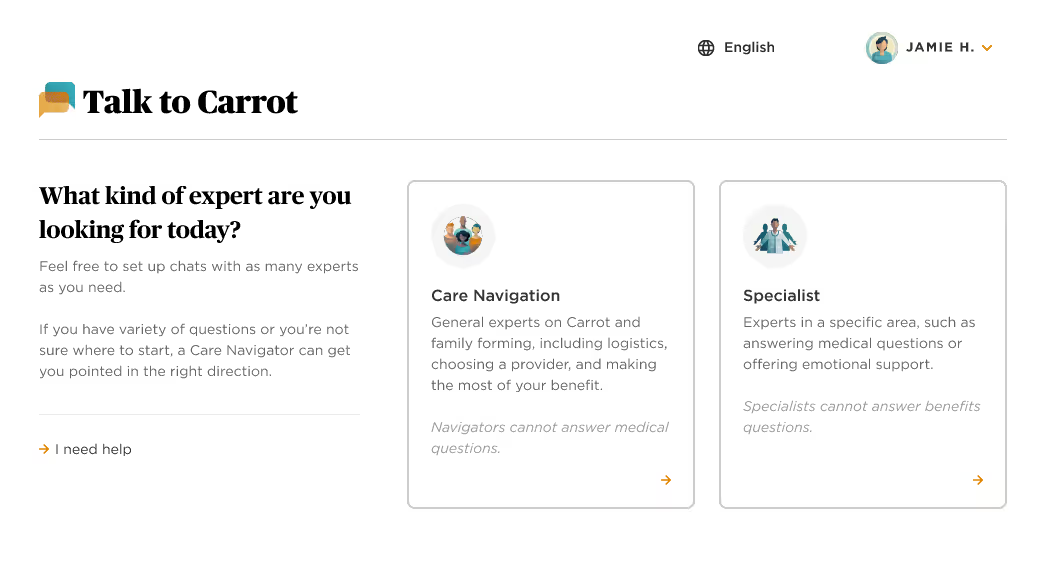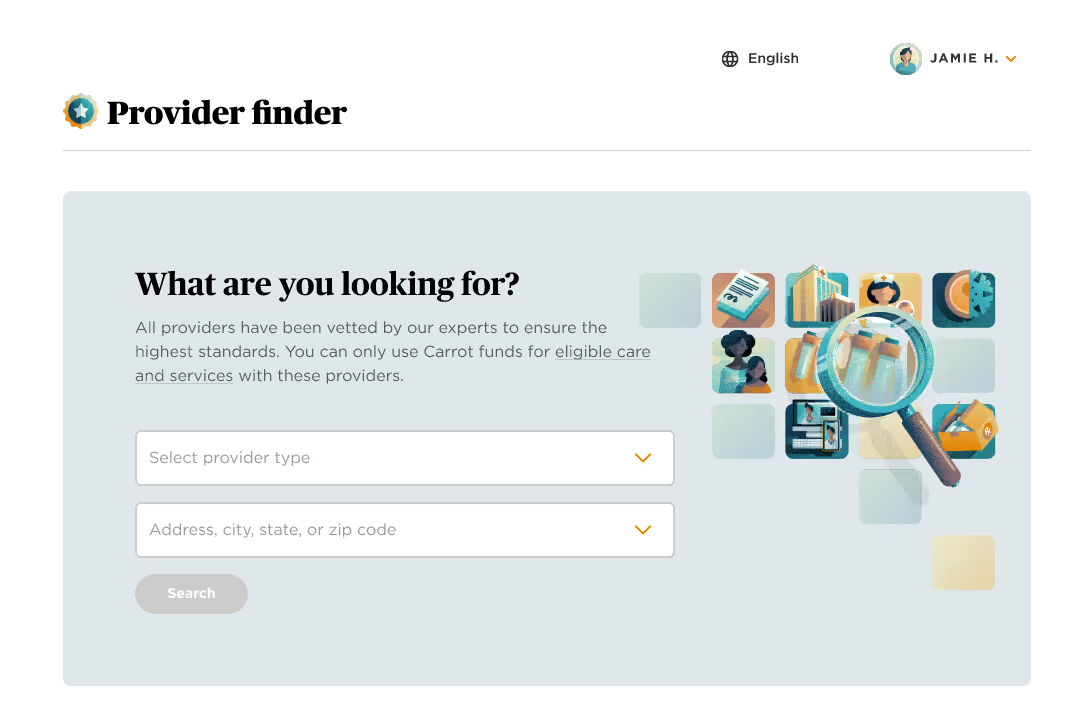Fertility preservation is on the rise globally. In fact, according to the Society for Assisted Reproductive Technology, the number of embryo-freezing procedures rose nearly 60% from 2015 to 2020. This increase is due to several factors, but one thing is for sure: this upward trend is here to stay.
Like most medical procedures, preserving eggs, embryos, or sperm can be incredibly costly. What exactly makes fertility preservation so expensive, and how can businesses manage these costs for employees and the overall bottom line?
In this article, we’ll cover:
- What is fertility preservation?
- Types of fertility preservation
- Fertility preservation costs
- The benefits of covering fertility preservation for employees
- How to reduce fertility preservation costs for your organization
What is fertility preservation?
Fertility preservation is the process of retrieving eggs, embryos, sperm, or other reproductive tissue and storing them in the hopes of producing biological children in the future.
The process of preserving fertility began with patients undergoing therapies that can cause infertility (chemotherapy, radiation, and more). They wanted to be able to build their families after treatment, which created a need to protect and preserve their healthy reproductive tissues.
Fertility preservation is often used in tandem with IVF or IUI treatments.
Types of fertility preservation
Fertility preservation isn’t one-size-fits-all. There are several ways people preserve their fertility for future use, including:
- Egg freezing
- Embryo freezing
- Sperm freezing
- Reproductive tissue preservation
Each of these types of preservation comes with its procedures and varying costs.
Learn more about the fertility preservation process.
Fertility preservation costs
Fertility preservation can cost tens of thousands of dollars. The final price tag varies greatly depending on a variety of factors: what material is being preserved, medical procedures needed for retrieval, and prescribed medications. All of these costs are multiplied with every new retrieval cycle.
Here’s a closer look at the costs associated with different types of fertility preservation:
Egg freezing costs
The out-of-pocket cost to freeze eggs can be anywhere from $15,000-$20,000 per cycle. This cost covers:
- Initial consultation and testing
- Medications for egg stimulation and other needs
- Monitoring via blood tests, ultrasounds, and more
- Egg retrieval, including anesthesia for the procedure
- Egg freezing and storing (cryopreservation)
According to Fertility IQ, the average person undergoes two cycles. That means the average egg-freezing journey can cost as much as $30,000-$40,000.
Learn more about the egg-freezing process.
Embryo freezing costs
Embryo freezing is more expensive than egg freezing — on average, an additional $5,000 or more per cycle. That’s because embryo preservation includes all of the egg-freezing costs above plus a few more lab procedures, including:
- Egg fertilization
- Embryo testing
- Embryo culture
- Preimplantation genetic testing (PGT)
Assuming two cycles are needed to be successful, the embryo freezing journey could cost between $35,000 and $40,000.
Sperm freezing costs
The cost to freeze — or bank — sperm is much lower than egg or embryo preservation. The total cost averages about $1,000-$4,000. It includes:
- Sperm collection
- Sperm analysis
- Freezing and storage
If the sperm-freezing process needs to be repeated, the price multiplies, as with egg and embryo freezing.
Additional fertility preservation costs
In addition to the costs we’ve listed above for each process, any fertility preservation journey could lead to additional expenses, such as:
- Consultations
- Genetic counseling
- Diagnostics and testing
- Travel costs
If someone is interested in pursuing IVF with their preserved materials, the final total increases considerably. Learn about the costs of IVF.
The benefits of covering fertility preservation for employees
It might seem like expanding fertility care coverage is a more costly option for a business. However, in the long run, investing in quality care for employees is best for the bottom line.
That’s because high-quality fertility programs can:
- Reduce costly interventions and long-term health issues with vetted, quality information and access to top providers
- Reduce administrative strain on HR and benefits teams
- Improve employee happiness and reduce expensive churn and recruitment costs
Moreover, 97% of employers surveyed by Mercer reported that adding fertility and family-building care options did not significantly increase medical plan costs.
How to reduce fertility preservation costs for your organization
While partnering with a specialized fertility care program makes financial sense, not all offerings are created equal. Offering your employees no fertility care is costly, but offering an incomplete solution can be even more expensive for businesses and individuals. And the fertility preservation journey is no exception.
Here’s how working with a complete fertility care platform like Carrot can manage costs for a business:
Built-in resources reduce administrative burden and employee spend

Carrot’s platform offers members access to educational resources and expert guidance around the clock:
- Carrot Academy: Trusted, medically reviewed resources such as articles, videos, guides, and group sessions curated for fertility preservation journeys
- In-the-moment support on benefits navigation from Carrot Companions
- Clinical support from Carrot Experts

These high-quality resources help employees navigate the complexities of fertility care independently of their in-house benefits team. This means more efficiency and time available for other administrative priorities.
Education also leads to more informed decisions by employees, saving everyone money. We’ve found that 60% of Carrot members choose less costly interventions thanks to what they’ve learned from our resources and experts.
Data-driven provider steerage means better care and lower costs

Carrot’s provider network is stacked with highly vetted fertility experts for the fertility preservation journey and much more: over 10,000 providers in over 170 countries.
With the Carrot provider finder, employees connect with the best-rated professionals in their area more quickly. That means less time and funding spent bouncing between providers and more on delivering genuine fertility care.
Medication discounts benefit businesses and employees
The price of fertility preservation medication can be surprisingly high. For instance, under a traditional healthcare plan, egg-freezing medications can cost as much as $10,000 per cycle for employers and members.
That’s where Carrot Rx comes in. Carrot Rx provides retail pharmacy services and financial administration of pharmacy reimbursement programs and services. This directly translates to savings for employees and businesses alike; compared to other models, Carrot Rx can save employers over 50%.
Improved employee retention saves on recruiting costs
Coverage for fertility care like preservation, IVF, and more is an increasingly important factor for employees when choosing and staying with a company.
And for fertility journeys beyond preservation, we also know that 90% of Carrot users who get pregnant return to work, due in part to better guidance, resources, and support.
This article is just the tip of the iceberg. Get even more facts and figures about fertility preservation.
Fertility preservation doesn’t have to break the bank
As shown in this article, there are many ways to manage the costs of fertility preservation journeys for your business. And it turns out, with the right partner, expanding fertility care coverage can even lower overall costs in the long run.
Carrot specializes in personalized fertility care, from preservation through pregnancy and beyond. Our healthcare experts, vetted resources, and relationships with pharmacies and clinics worldwide allow us to deliver better care to employees at a lower cost to employers. Learn more here.













